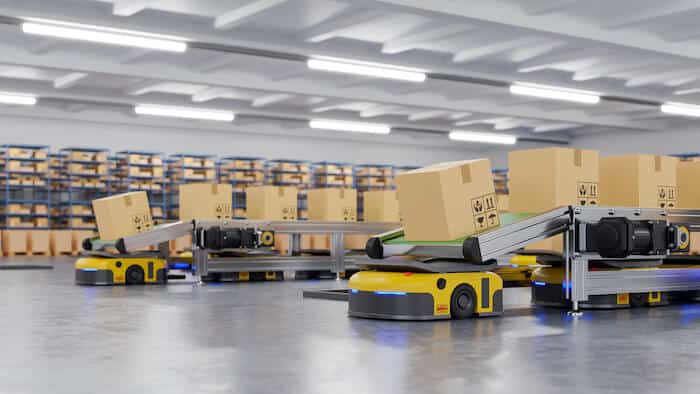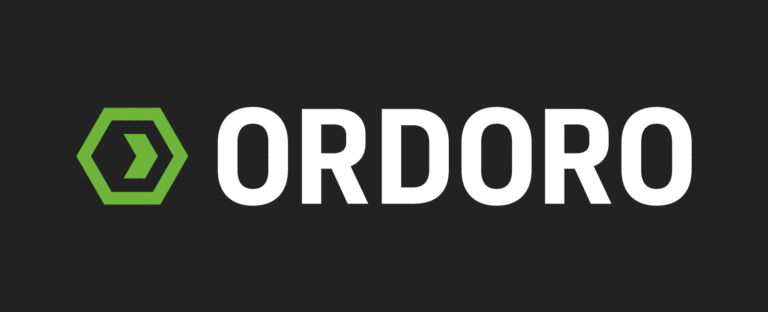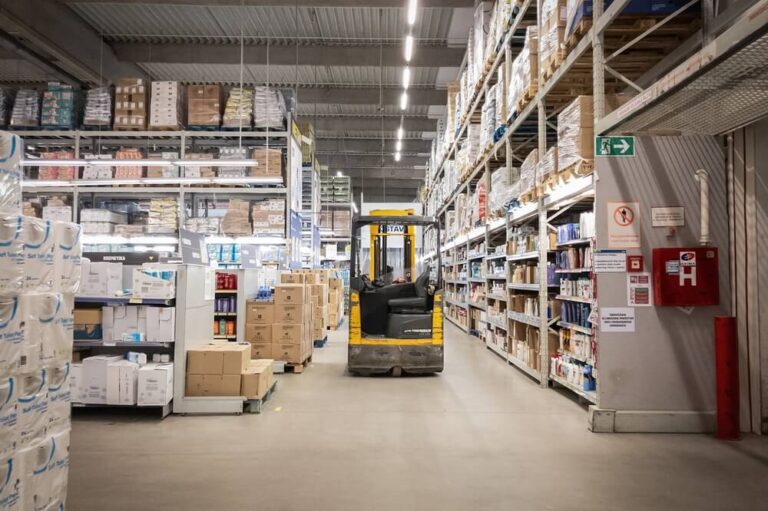Just before the pandemic, a new trend emerged among small Amazon brands.
Well-funded companies began buying up successful small sellers.
As online shopping surged, the idea of consolidating brands took off. These companies, called Amazon aggregators, buy resellers with decent annual revenue and use expert e-commerce marketing and business systems to boost profit and revenue.
Whether you’re a startup or an established company, you’ve likely thought about your exit strategy. Selling to a larger competitor? Growing enough for a private equity buyout? Or maybe just running a cash business without scaling further?
Consider adding “sell to an Amazon aggregator” to your list.
In 2021, these firms raised over $12 billion to buy and grow Amazon brands. If you have a private-label business on Amazon, or plan to start one, you need to understand what Amazon aggregators are.
In this article, we’ll cover:
- The advantages of selling to an Amazon aggregator
- The acquisition process
- Key financial aspects
- Types of buyers and sellers
This guide will help you maximize your market value and make an informed decision.
What Are Amazon Aggregators?
Amazon aggregators are companies that buy successful small brands selling on Amazon. These aggregators, like Thrasio, Perch, and SellerX, raise money to purchase these businesses. They focus on brands using Fulfillment by Amazon (FBA), which means Amazon handles product storage, shipping, and customer service.
These aggregators succeed by leveraging economies of scale and their expertise in e-commerce. While you might have a small team running your business, they have hundreds or even thousands of employees. This allows them to manage your brand more effectively and grow it faster.
There are over 100 active Amazon aggregators, each with different strategies. Some look for successful FBA brands, while others focus on specific industries or regions. Although many are based in the U.S., you’ll find aggregators in other countries too. Some even consider sellers on platforms like Shopify and Walmart.com.
In most cases, Amazon aggregators use Earnings Before Interest, Taxes, Depreciation, and Amortization (EBITDA) or a metric developed for small retailers, Seller’s Discretionary Earnings (SDE), to determine the purchase price. They generally pay a multiple of one of these metrics, called the valuation. Last year, many aggregators paid decent multiples of two to four times EBITDA for Amazon sellers.
Typically, when you sell to an aggregator, you get a lump sum at the time of purchase. You might also receive additional payments over time, depending on how well your brand performs after the sale. This is known as an earnout.
5 Advantages of Joining an Amazon Aggregator
Here are five advantages that we see to help you make that decision:
1. You Get Money for Your Brand Now
Remember that old saying, one bird in the hand is better than two in the bush? Well, that applies to selling your Amazon FBA business to an aggregator. You might make more money in the future, but you will definitely make whatever price you negotiate if you sell to them now.
2. The Amazon Aggregator Can Grow Your Brand Faster
Amazon aggregators make money because they know how to work the Amazon selling platform. They will invest in pay-per-click (PPC), more professional product images, and SEO for your listing. There is a lot to Amazon listing optimization, and they have dedicated time and expertise into getting the most out of, and keeping up with, all the ways you can get a product in front of more customers.
You may ask yourself, “After I sell, why do I care if the brand grows?” Well, their ability to build sales ties directly to how much they will pay you. If your sale includes an earnout provision, you can see much more money over time as the sales of your former products go up.
3. You No Longer Have To Deal With Running Your FBA Business
You may like working with your team to source and promote your private-label products. But, if you are like most entrepreneurs, you may miss the building stage fun and get tired of the day-to-day grind of dealing with all those details. Supply chain headaches are a great example of something you may never want to deal with again. And once you sell, you can take a break or focus on your next entrepreneurial conquest.
4. Make More Money Over Time
Even if your brand is doing well, you may have hit a plateau and need a bigger team and more money to get your products to the next level. When you sell to an FBA aggregator, they bring all their expertise to the table to increase revenue and profit margins.
But remember, you need to negotiate an earnout deal with strong incentive payments so you benefit if they do well with your brand.
5. Once Your Earnout Is Done, Market Fluctuations Are No Longer a Risk
When Amazon aggregators roll up companies, they take on the risk associated with selling in the Amazon Marketplace. If you were lucky enough to catch a fad, you don’t have to pay the price when the trend goes away. The same goes for future supply chain issues, inflation, recession, and other market fluctuations. Changes in the ecosystem are something they have to deal with, not you.
Understanding the Acquisition Process
Selling your Amazon business to an aggregator involves several key steps. Here’s a breakdown of the process to help you understand what to expect.
Initial Contact and Evaluation
The process begins with the aggregator reaching out to you or you contacting them. They will start by evaluating your business to see if it fits their acquisition criteria.
- Initial Inquiry: Either party can initiate contact. Aggregators often identify potential acquisitions through Amazon sales data.
- Preliminary Review: The aggregator conducts a preliminary review of your business, looking at key metrics like revenue, profit margins, and growth potential.
- Confidentiality Agreement: Both parties sign a non-disclosure agreement (NDA) to protect sensitive business information during the evaluation.
Detailed Business Analysis
Once the initial review is positive, the aggregator will conduct a more detailed analysis of your business.
- Financial Audit: A thorough audit of your financial statements, including revenue, expenses, and profitability.
- Operational Review: Examination of your business operations, supply chain, and customer service processes.
- Market Positioning: Assessment of your brand’s market position, competition, and growth potential.
Offer and Negotiation
If your business passes the detailed analysis, the aggregator will make an offer.
- Valuation: The offer is based on a multiple of EBITDA or SDE. The valuation process considers factors like growth potential and industry trends.
- Term Sheet: The aggregator presents a term sheet outlining the offer, including the purchase price, payment structure, and any earnout provisions.
- Negotiation: Both parties negotiate the terms to reach a mutually beneficial agreement. This can involve adjustments to the valuation, payment terms, or earnout conditions.
Due Diligence
After accepting the offer, the aggregator performs a final due diligence process to verify all aspects of your business.
- Legal Review: Examination of legal documents, contracts, and intellectual property.
- Compliance Check: Ensuring your business complies with all relevant laws and Amazon policies.
- Final Financial Check: Verify financial details and confirm that there are no hidden liabilities.
Closing the Deal
Once due diligence is complete, the deal moves to the closing stage.
- Final Agreement: Both parties sign the final purchase agreement, detailing all terms and conditions.
- Payment: An initial lump sum payment is made, followed by any structured payments as outlined in the agreement.
- Transition Period: You may need to assist with transitioning your business to the aggregator’s team, ensuring a smooth handover.
What Are Amazon Aggregators Looking For
Amazon aggregators look for certain things in the businesses they buy. Knowing what they want can help you make your brand more appealing to them.
A Brand With Products Customers Want
You have to start with products that people want to buy. That goes back to good market research and product development. They want a brand with products that fill a need in the marketplace and deliver value to customers.
A Private Label That Uses FBA
Amazon aggregators focus on the selling part of the full product development, manufacturing, and sales process. They are not interested in third-party sellers because they don’t want to take on manufacturing or all the details of shipping and supporting the product. When they buy a private label seller, they only have to order from the existing manufacturer. And with FBA, all the logistics, warehousing, and support are handled by Amazon.
$1 Million to $5 Million in Annual Sales
These numbers can vary across the market. Most Amazon aggregators pursue smaller sellers who have proven a need in the marketplace but have room to grow bigger.
A Profit Margin Between 10-20%
Amazon aggregators want brands that make a good annual net profit but also have room to increase the profit margin. They search for companies in the 10-20% margin range. By using their skills at Amazon Marketplace selling and reducing costs through shared services, they can improve that profit margin.
Manufacturing Partnerships They Can Work With
The last thing an acquirer wants to do is swap out manufacturing suppliers after buying a brand. So they select companies with a clean supply chain and a partnership with a reliable manufacturing partner they can easily assimilate into their system.
Consolidation Strategy Fit
Every Amazon aggregator has a set strategy on what product category, selling profile, history, supply chain, and brand image they are looking for. Some want to add new brands with only one product. Others seek a variety of SKUs. Some may focus on one vertical like supplements, consumer electronics, or personal care products. If you decide to sell, work with Amazon aggregators aligned with what you have to offer.
Financial Aspects of Selling to an Amazon Aggregator
When selling your Amazon business to an aggregator, understanding the financial aspects is crucial. Aggregators use several key metrics to determine your business’s value and structure the deal.
- Earnings Before Interest, Taxes, Depreciation, and Amortization (EBITDA): This metric measures your business’s profitability before accounting for financial and non-operational expenses. It’s a common metric used to value businesses.
- Seller’s Discretionary Earnings (SDE): This is often used for smaller businesses and includes the owner’s salary and benefits. It provides a clearer picture of the total financial benefit a new owner can expect.
- Valuation Multiples: Aggregators typically pay a multiple of EBITDA or SDE. For example, if your business has an EBITDA of $500,000 and the multiple is 3x, the valuation would be $1.5 million.
- Venture Debt and Equity Funding: Aggregators often finance acquisitions using a mix of equity funding and venture debt. Understanding how these elements impact the deal can help you negotiate better terms.
- Earnout Provisions: Part of your payment might come as an earnout, which means you’ll receive additional payments based on the future performance of your brand. This incentivizes you to ensure a smooth transition and continued success of the business.
Understanding these financial aspects will help you navigate the selling process and maximize your deal’s value.
The Types of Buyers and Sellers in Amazon Aggregator Deals
When selling your Amazon business, it’s important to understand the different types of buyers and sellers in the market. This knowledge can help you find the right match and maximize your business’s value.
Types of Buyers
There are a few different groups of buyers interested in Amazon businesses, each with different goals and strategies.
- Strategic Buyers: These are companies looking to acquire businesses that complement their existing operations. They aim to create synergies and achieve faster growth by integrating your brand with theirs.
- Financial Buyers: These include private equity firms and investment funds looking for profitable businesses to add to their portfolios. They focus on the financial performance and potential return on investment.
- Amazon Aggregators: Specialized buyers who focus on acquiring and scaling Amazon FBA businesses. They bring expertise in e-commerce and aim to grow brands using their resources and knowledge.
Types of Sellers
Sellers come in different forms as well, each presenting unique opportunities and challenges for buyers.
- Private-Label Brands: These sellers create and sell their own branded products on Amazon. Aggregators prefer these businesses because they control the product development and supply chain.
- Third-Party Sellers: These sellers resell products from other manufacturers. Aggregators are less interested in these businesses as they involve more complexities in the supply chain and lower control over the product.
- Niche Brands: Brands that focus on specific product categories or customer segments. These can attract aggregators looking to diversify their portfolios or enter new markets.
- Established Brands: These are businesses with a proven sales and growth track record. They are often seen as lower-risk acquisitions and can command higher valuations.
Understanding the different types of buyers and sellers helps you position your business effectively and find the right partner for a successful sale.
Partner with Experts to Maximize Your Value
The best way to maximize your sale price is to maximize your value. And the best way to do that is to partner with experts like the team at Gembah. We can help you with market research, product design, finding a manufacturing partner, and even adding products to your portfolio.If you are just beginning your product journey, start your project with us. If you already have products and want help with any part of getting those products to market, or introducing new ones, contact us, and our experts will start adding value right away.



